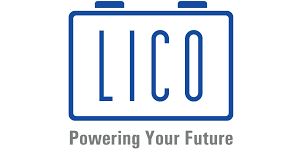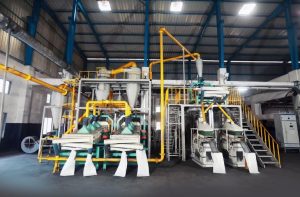The global demand for lithium is expected to surpass 2.4 million metric tons of lithium carbonate equivalent by 2030. With India aiming for 30 percent EV adoption by that time and with limited domestic reserves of critical materials, it faces the challenge of ensuring a stable supply as the pressure mounts. As battery demand grows, recycling can provide rare metals needed for cell manufacturing, addressing limited availability and concentration in few nations, says Gaurav Dolwani, Founder and CEO, LICO Materials in an interview with Anurima Mondal, Editor of EVolution Auto India.

Q: Please walk us through the business journey of LICO Materials and its significant milestones and crucial achievements.
Gaurav Dolwani: LICO, a recycling and refurbishing company was founded in 2021 with focus to create a sustainable circular economy solution in the lithium-ion battery supply chain for recovery of critical materials such as lithium, cobalt, manganese, and nickel to be given back to battery manufacturers to give the materials a second life.
Batteries received from consumer electronics and energy storage go towards recycling whereas batteries received from electric mobility are tested and the cells that can be used for refurbishing are given a second life by being used in an energy storage application.
India does not have any of the critical minerals for making a lithium-ion battery and needs to import them. By reusing the same minerals, LICO helps in contributing to India’s journey of becoming Energy Independent by reducing dependency on foreign countries and impacting in reduction of imports.
Achievements:
- LICO was selected as one of the top 20 Circular Economy Startups to watch out for by StartUs Insights.
- LICO was felicitated with ‘Best Green Initiatives category’ at 10th MSME Excellence Awards organized by The Associated Chambers of Commerce and Industry of India (ASSOCHAM).
Q: The recycling and disposal processes of batteries are touted to be difficult due to the toxicity of the chemical compositions. What technology does LICO Materials use to create a sustainable environment through its reduced waste and zero waste process of battery recycling?
Gaurav Dolwani: LICO has pioneered its mechanical separation process to ensure that the Black Mass-produced during recycling is of the highest purity grade which enables us to have partnerships with global giants. The consistency in quality over long term has helped in gaining confidence from our customers. Both Mumbai and Bangalore plants are Zero Liquid Discharge facility, where we reuse 3 lakh litres of water annually. Both facilities generate Zero harmful emissions into the environment.
Q: Could you shed some light on the battery recycling industry? What gives you an edge over your competitors?
 Gaurav Dolwani: Fuelled by government initiatives and growing environmental concerns, the adoption of EVs is rapidly transforming India’s transportation landscape. However, this promising sector presents a new challenge: the responsible management of Lithium-ion (Li-ion) batteries that power these vehicles. As the use of Li-ion batteries explodes, India has a unique opportunity to establish itself as a leader in the sustainable and responsible recycling of these critical components. JMK Research estimates that India’s Li-ion battery market will reach a staggering 132 GWh by 2030, translating to a potential USD 1 billion opportunity in the battery recycling sector.
Gaurav Dolwani: Fuelled by government initiatives and growing environmental concerns, the adoption of EVs is rapidly transforming India’s transportation landscape. However, this promising sector presents a new challenge: the responsible management of Lithium-ion (Li-ion) batteries that power these vehicles. As the use of Li-ion batteries explodes, India has a unique opportunity to establish itself as a leader in the sustainable and responsible recycling of these critical components. JMK Research estimates that India’s Li-ion battery market will reach a staggering 132 GWh by 2030, translating to a potential USD 1 billion opportunity in the battery recycling sector.
LICO has pioneered its mechanical separation process to ensure that the Black Mass-produced during recycling is of the highest purity grade which enables us to have partnerships with global giants. The consistency in quality over long term has helped in gaining confidence from our customers. The global industry standard Recovery Rate from mechanical separation is at 75-80 percent but at LICO, we have achieved recovery rate as high as 92 percent in our mechanical separation process.
Q: Please let us know about your association with MG Motors and Karo Sambhav. How are such collaborations contributing to the growth of LICO Materials?
Gaurav Dolwani: LICO has signed an MoU with Karo Sambhav. Under the MoU, Karo Sambhav will be responsible for collecting, storing, and transporting lithium-ion batteries to LICO’s recycling facilities. Karo Sambhav will also bring its experience and expertise in Client Servicing for EPR for battery supply partners for LICO. LICO will recover metal salts through recycling and supply the same to battery manufacturing and EV industry for reuse in batteries, reducing dependence on critical minerals imports and mining.
LICO and MG Motor India will together implement strategies for battery repurposing in line with circular economy, focusing on renewable energy storage and ensuring compliance with end-of-life battery recycling regulations. LICO will assist MG Motor India in its Extended Producer Responsibility (EPR) obligations by providing comprehensive battery recycling and certification services. Through R&D collaboration both companies will develop a sustainable package to optimise recycling efficiency and repurposing capabilities to derive maximum potential from EV battery recycling.
Through these collaborations LICO aims to set new standards for circular economy principles in the EV and battery recycling sector.
Q: The current Indian government has set a target of achieving 30 percent electric vehicle penetration by 2030. What are your views on the EV industry? What will its impact on the battery recycling industry?
Gaurav Dolwani: The global demand for lithium is expected to surpass 2.4 million metric tons of lithium carbonate equivalent by 2030. With India aiming for 30 percent EV adoption by that time and with limited domestic reserves of critical materials, it faces the challenge of ensuring a stable supply as the pressure mounts. As battery demand grows, recycling can provide rare metals needed for cell manufacturing, addressing limited availability and concentration in few nations. As per a Niti Aayog estimate, critical minerals and their active materials, integral to lithium-ion battery (LIB) production, contribute to about 33 percent-48 percent of the total pack cost, making it crucial to have a domestic reserve to depend on. Without recycling, meeting battery cell material demand solely through mining will cause severe environmental harm, including deforestation, GHG emissions, ecological imbalance, and water depletion. The burgeoning market for EVs and renewable energy has pushed India’s focus on establishing next generation energy supply chains. Recycling is not a choice but a mandate for energy security.
Q: How, in your opinion, is recycling lithium-ion batteries in India a priceless opportunity?
Gaurav Dolwani: India’s push towards electric vehicles has seen a considerable increase in EVs on the roads despite initial slow momentum from sectors. This shift extends beyond EVs, including battery energy storage, and other consumer electronics, all reliant on lithium-ion batteries.
India does not have any of the critical metals required to make lithium-ion batteries, and urban mining of our existing batteries can replace the need for having traditional natural resources.
With the EV market predicted to rise by 250 percent over the next three to four years, the importance of sustainable practices, particularly in battery recycling, cannot be overstated.
Q: The Environment Ministry of India has introduced Battery Waste Management Rules 2022 to ensure that used batteries are collected, segregated, transported, and recycled in a standardized and eco-friendly manner. How can the entire process be made sustainable? What are your thoughts on the government policies related to battery recycling?
Gaurav Dolwani: While there is a nascent policy on battery recycling, it lacks the robustness needed to guide citizens on proper disposal methods. OEMs are beginning to scrap batteries, but the critical step is to recycle these batteries effectively. For EV battery recycling to be profitable, Indian OEMs must support recyclers and create circular supply chains for EV batteries. The economics of recycling primarily depends on three factors: Li-ion battery chemistry, metal prices, and processing costs. As battery recyclers scale their operations, the costs of each of these factors drop leading to a cycle where future EV batteries are recycled at lower costs and more sustainably.
Q: The growth of digitalization is driving a significant evolution in every sector. How is LICO Materials using such tools in its solutions?
Gaurav Dolwani: LICO Materials is utilizing automation to advance its recycling operations thus enhancing efficiency, consistency, and effectiveness of its recycling operations, leading to higher recovery rates and better resource management.
LICO’s partners get access to an app and a portal where each battery can be tracked and traced with live tracking so that every transaction is completely transparent. This way the circularity of battery materials are be truly traced.
Q: As a tech enthusiast, how has your journey been at LICO Materials? What are your long-term net-zero goals?
Gaurav Dolwani: My journey as CEO of LICO Materials is characterized by a transformative approach to recycling, driven by technology and sustainability. Our focus on innovation and technology has helped the company navigate the complexities of the recycling industry and achieve significant milestones.
With focus on sustainable practices in the EV ecosystem, LICO Materials is aligned with the Government of India’s mission to achieve Net Zero emission by 2070.